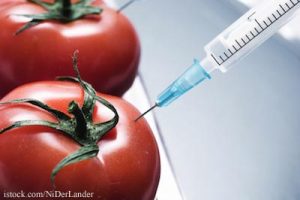The USDA’s Animal and Plant Health Inspection Service (APHIS) released its Draft Environmental Impact Statement (DEIS) as part of a review to determine whether to deregulate generically engineered (GE) corn and soybean plants that are resistant to herbicides, including 2,4-D, which is half of the toxic chemical mixture Agent Orange.
 APHIS is performing an assessment of the plants, while the EPA is conducting a review of the related herbicides. To accomplish these tasks, APHIS conducts two analyses to see if the GE plants pose a “pant pest risk” to agricultural crops. Their preliminary assessment finds that they do not pose a plant pest risk. Then APHIS must evaluate the potential effect on the environment. The EPA conducts risk assessments on potential human health risks. Dow AgroScience’s GE corn and soybean plants are the first developed to be resistant to 2,4-D.
APHIS is performing an assessment of the plants, while the EPA is conducting a review of the related herbicides. To accomplish these tasks, APHIS conducts two analyses to see if the GE plants pose a “pant pest risk” to agricultural crops. Their preliminary assessment finds that they do not pose a plant pest risk. Then APHIS must evaluate the potential effect on the environment. The EPA conducts risk assessments on potential human health risks. Dow AgroScience’s GE corn and soybean plants are the first developed to be resistant to 2,4-D.
According to the Center for Food Safety, the chemical 2,4-D is the seventh largest source of dioxins in the U.S. Dioxin contamination in rivers and the soil around Dow Chemical’s headquarters in Midland, Michigan has caused the highest dioxin levels ever found by the EPA in fish. In addition, breast cancer rates in the area have increased. The chemical has been linked to cancer, Parkinson’s disease, endocrine disruption, and reproductive problems in humans.
This chemical is used because Roundup Ready GE crops have led to resistant weeds, so another herbicide is needed. CFS calls this an “escalating chemical arms race going on across America’s heartland.” Dow is promoting GE 2,4-D corn and soy as the solution to glyphosate (the ingredient in Roundup) resistant weeds, but the GE crop systems caused the glyphosate resistant weeds in the first place.
You can comment on the USDA decision at Regulations.gov. And you can sign a petition against the approval of 2,4-D GE crops at the Center for Food Safety link above.




